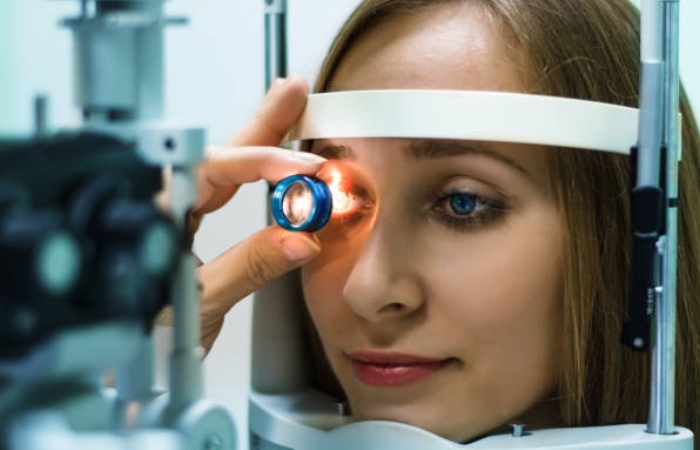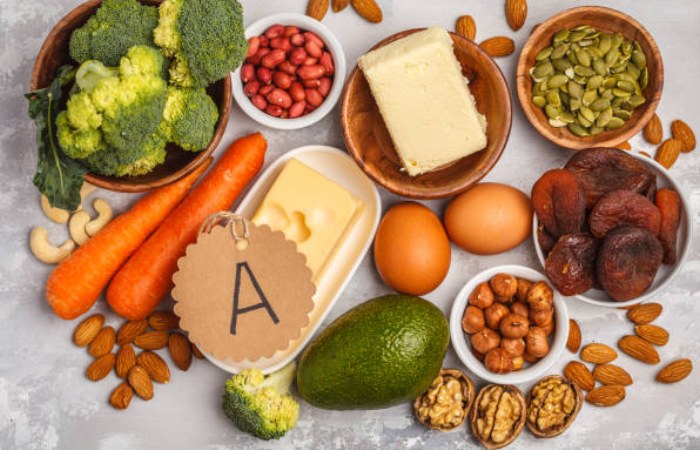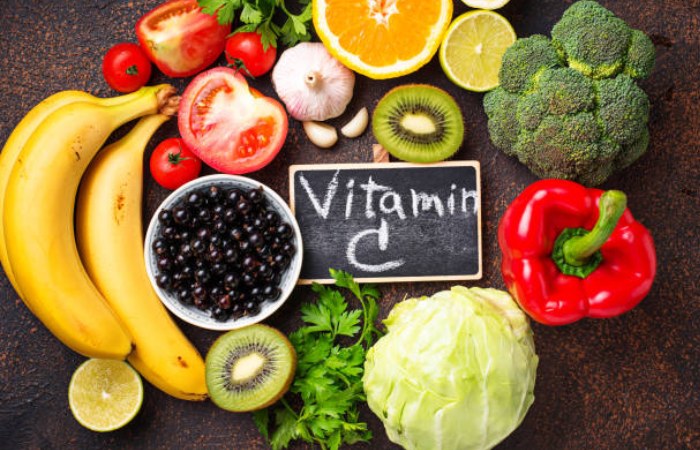The right diet can reduce your risk of developing an eye health problem. A nutrient-rich, whole foods-based eating plan will keep you feeling energized and focused so that not only does it promote good brain function but also helps prevent certain vision problems like glaucoma or cataracts!
Some certain vitamins and minerals are essential for eye health, so make sure to include them in your diet!
Table of Contents
Common Eye Problems
The number of people who develop an eye disease or have a risk factor for eyes increases as you age. It’s important to get regular eye exams to know the signs of an eye problem and what you can do about them. Here are some common eye problems, along with tips on how preventative measures of having a healthy diet will help minimize your risk of developing these issues further down the road!
Dry Eyes
Essential fatty acids are critical for the health of your tears. A deficiency in these can lead to dry eyes and contribute to other serious conditions like macular degeneration. Essential fatty acids are found in fish, nuts, and seeds. Eat a handful of almonds every day or take a daily supplement that contains Omega-3s.
Age-Related Macular Degeneration (AMD)
This is the leading cause of blindness in adults over age 50. AMD occurs when the macula, the central part of your retina, deteriorates. There are two types of AMD: dry and wet. Dry is more common and less serious, while wet can lead to vision loss much more quickly.
Several vitamins and minerals have been shown to help reduce the risk of developing AMD or slow its progression, including:
– Vitamin C: Found in citrus fruits, broccoli, Brussels sprouts, and sweet potatoes
– Vitamin E: Found in nuts, seeds, and leafy green vegetables
– Zinc: Found in oysters, beef, poultry, and beans
Glaucoma

This group of eye diseases damages the optic nerve, which connects your eye to your brain. It is the leading cause of blindness in African Americans and Hispanics. People with diabetes are also at increased risk for glaucoma.
There is no cure for glaucoma, but it can be controlled with medication and surgery. Some studies have shown that certain vitamins and minerals may help protect against the development of glaucoma or slow its progression, including:
– Vitamin C: Found in citrus fruits, broccoli, Brussels sprouts, and sweet potatoes
– Vitamin E: Found in nuts, seeds, and leafy green vegetables
– Beta-carotene: Found in carrots, sweet potatoes, squash, and dark leafy greens
– Zeaxanthin and lutein: Found in eggs, spinach, kale, and collard greens
Some certain vitamins and minerals are essential for eye health, so make sure to include them in your diet! Here are the top 5 essential vitamins for eye health:
Vitamin A

This vitamin is important for vision as it helps the retina, cornea, and other eye parts function properly. It helps to produce tears, which keep the eyes lubricated and prevent dryness. Besides, it helps to protect the surface of the eye from infection. Foods that are rich in vitamin A include carrots, sweet potatoes, spinach, kale, and eggs.
Vitamin C

Vitamin C is a powerful antioxidant that can help to protect the eyes from damage caused by free radicals. And it also helps to reduce inflammation and keep the blood vessels in the eyes healthy. Foods that are rich in vitamin C include oranges, grapefruits, bell peppers, broccoli, and tomatoes.
Omega-3 Fatty Acids
Omega-3 fatty acids are essential for eye health as they help to reduce inflammation and keep the eyes lubricated. So they help to protect the eyes from damage caused by free radicals. Foods that are rich in omega-3 fatty acids include salmon, mackerel, sardines, and walnuts.
Zinc
Zinc is essential for eye health as it helps to protect the eyes from damage caused by free radicals. It also helps to keep the immune system strong, which is important for preventing infection. Foods that are rich in zinc include oysters, beef, chicken, and beans.
Conclusion
In conclusion, professionals suggest certain vitamins and nutrients help prevent or slow down eye health risks and conditions. It’s recommended that you take supplements if you lack any of these vitamins within your diet. This article gave you more insight into the types of foods needed in a diet for optimal health for your body and eyes.
